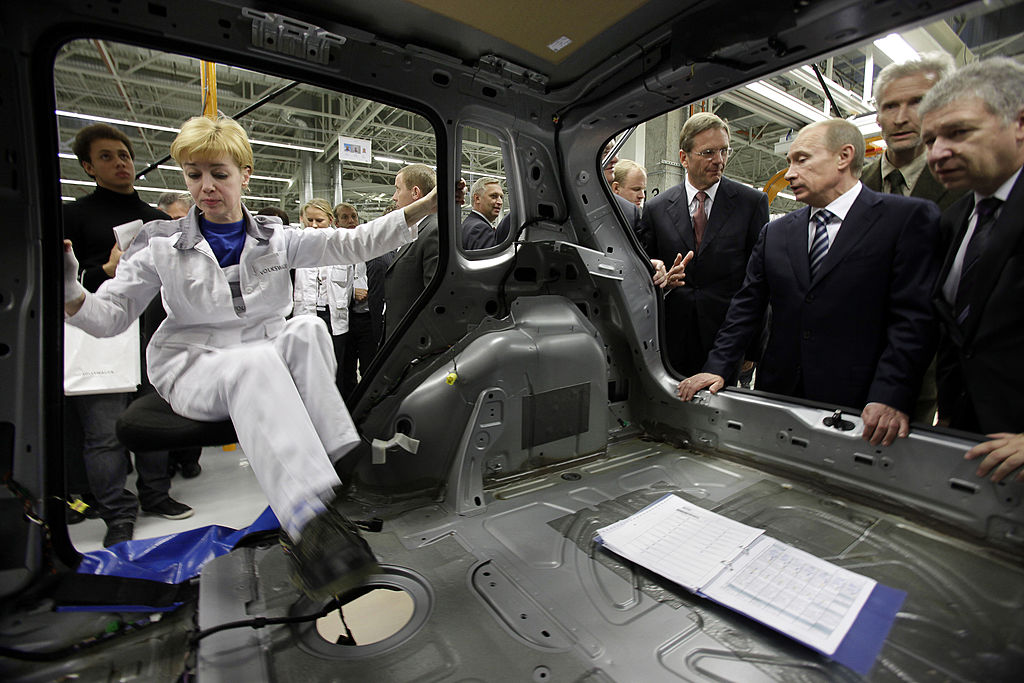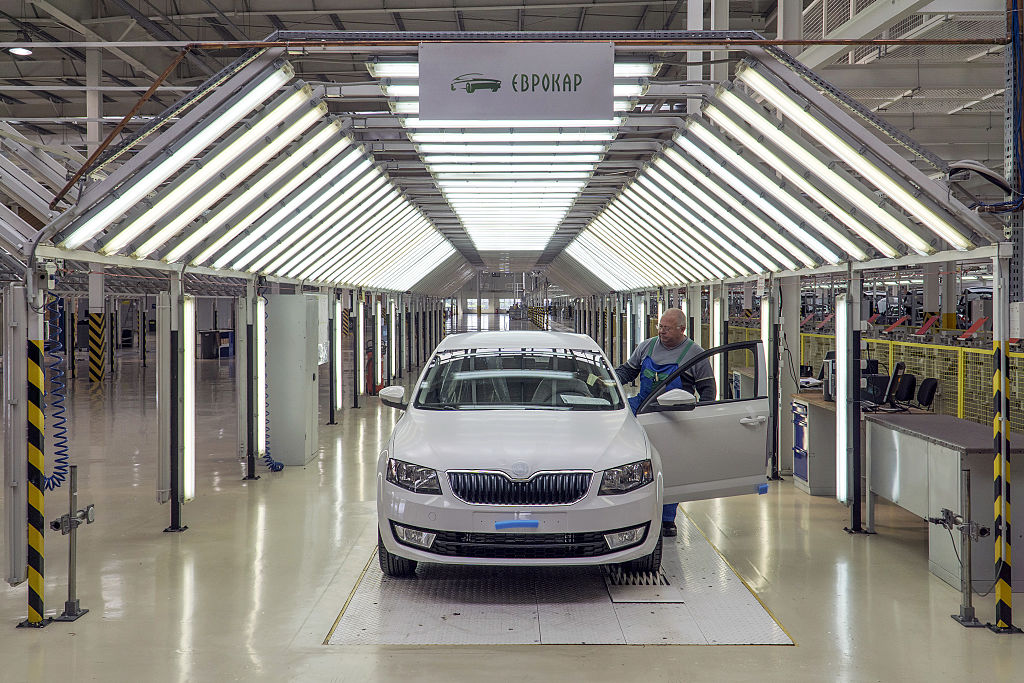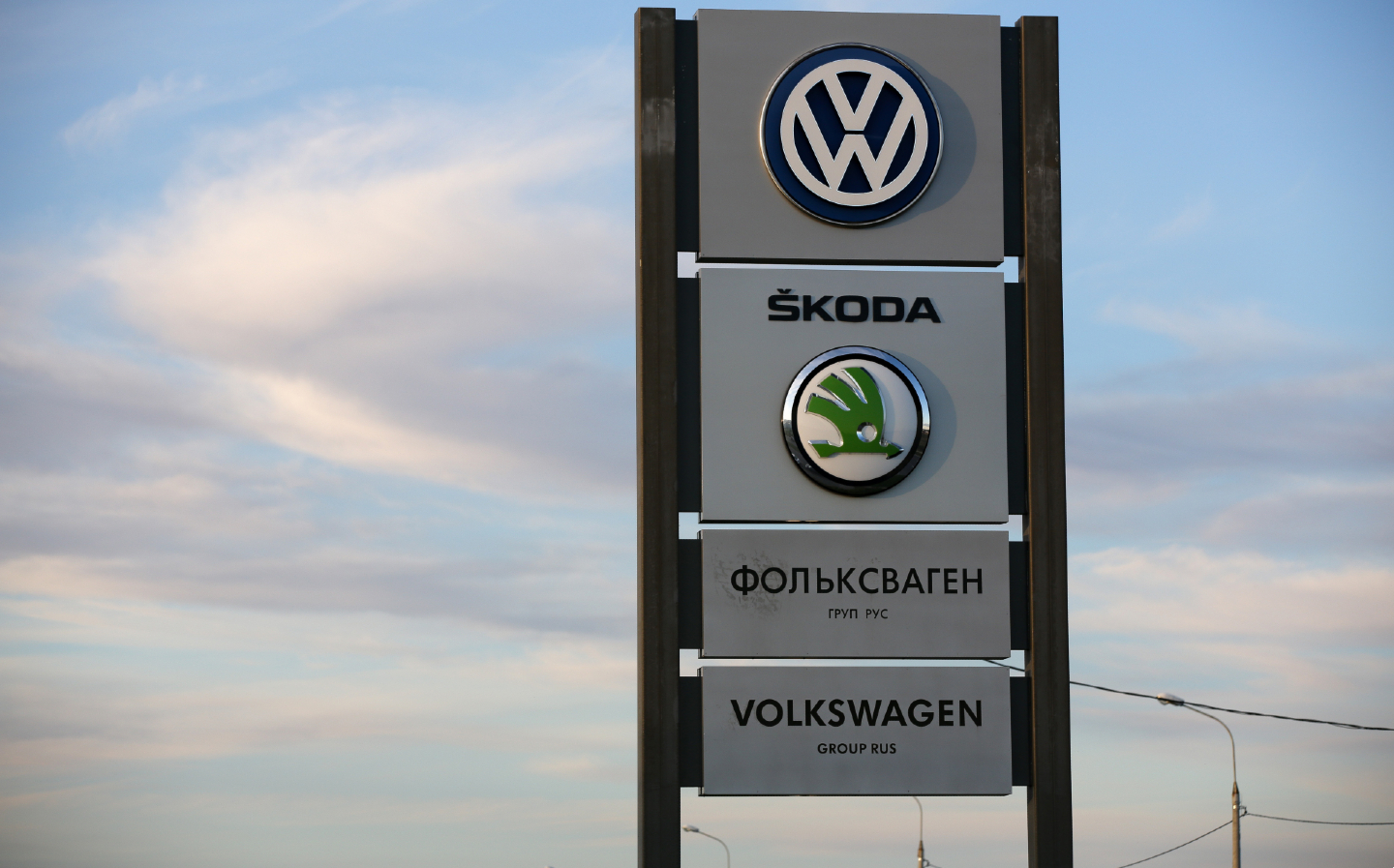Skoda close to deal on sale of Russian assets in wake of Ukraine invasion
Rapid, Octavia, Karoq and Kodiaq models were all built in Russia
Skoda has announced that it is close to completing a deal that will see all of its assets in Russia sold.
Parent company Volkswagen Group suspended exports of cars to Russia and all operations in Russia following the country’s invasion of Ukraine in March 2022. That included pausing production of the Skoda Rapid model at its Kaluga plant and ending operations at the Gaz automotive plant in Nizhny Novgorod, which had produced the Octavia, Karoq and Kodiaq models under contract since 2011.
In July 2022, VW Group additionally removed its office from Nizhny Novgorod and majority of staff took an offer to leave voluntarily, according to Skoda.
Since the suspension of operations in the region, Skoda’s employees in Kaluga have remained employed by the company and their wages were paid while Volkswagen Group monitored the situation. In January, a statement on the Skoda website read: “Intensive negotiations, which also involve the trade unions, are currently underway at the Group level.”
With no end to the war in sight, the sale of the Kaluga factory and the brand’s assets in Russia is not unexpected.

Speaking during the Skoda Auto Annual Press Conference this morning, Skoda CEO Klaus Zellmer said: “The Volkswagen Group has analysed various scenarios for the future of our business options in Russia. The preferred option is to sell the assets of Volkswagen Group Russia and thereby also the Kaluga plant to a third party.
“We are in the final stages of finalising the deal and are expecting to close it rather soon. However, we cannot go into detail before the deal is agreed upon with all parties.”
Russia was Skoda’s second-largest market in 2021, with a total of 90,400 vehicle deliveries in the country. Zellmer described the impact on financial results of its suspension of operations in Russia as “significant”, and highlighted the additional impact of the war on the company’s supply chain, especially regarding wiring harnesses that were produced in Ukraine.
As a result a task force team was set up to “handle the situation optimally” and VW Group has duplicated that wiring harness production at locations outside Ukraine while supporting suppliers inside the wartorn country.
Production of the Superb, Kodiaq, Karoq and the Fabia Combi is carried out by partner Eurocar at the Solomonovo plant, and Skoda said production in Western Ukraine is now almost back to normal levels.

“Rest assured, we are standing by our Ukrainian partners and in collaboration with them, we managed to duplicate the missing manufacturing capacity of wiring harnesses in Europe and in North Africa,” Zellmer said.
In order to secure the brand’s long-term stability, Skoda has also expanded operations in the “growth markets” of India and Vietnam.
Follow @wdron Tweet to @wdronRelated articles
- After reading about Skoda selling its assets in Russia, you might like to check out how the car industry initially responded to the invasion of Ukraine
- Extended test: 2022 Skoda Kamiq Monte Carlo 1.0 TSI review
- Skoda reveals Vision 7 S, a concept set to preview one of three new electric models due by 2026
Latest articles
- Seven great automotive events to visit this summer, from F1 to art and champagne
- Watch new Porsche 911 GT3 smash Nürburgring record for manual cars
- Skoda Elroq 2025 review: Czech carmaker can’t seem to miss with its electric family cars
- Five best electric cars to buy in 2025
- Should I buy a diesel car in 2025?
- F1 2025 calendar and race reports: The new Formula One season as it happens
- Zeekr 7X AWD 2025 review: A fast, spacious and high tech premium SUV — but someone call the chassis chief
- Denza Z9GT 2025 review: Flawed but sleek 1,062bhp shooting brake from BYD’s luxury arm
- Extended test: 2024 Renault Scenic E-Tech review














